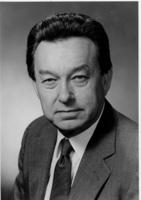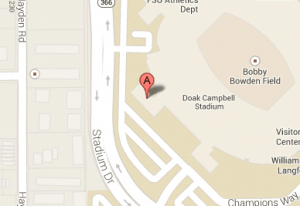Message from the Director, Dr. Patrick F. Merle

In February 1997, a stone’s throw from the Paris Opera, Craig Whitney, then Paris bureau chief for The New York Times, explained to me the value of a holistic understanding of communication and the essential need to approach this ever-changing field with the constant desire to be empathetic, versatile, flexible, as well as thorough, meticulous, and precise with words.
This perspective echoes the one chosen by the School of Communication at Florida State University. A perspective that highlights the fundamental benefits of examining the field from a myriad of theoretical, practical, and creative points of views. A perspective that ultimately encourage students to select our programs, confident that they will receive a unique set of skills to be engaged citizens and dynamic actors regardless of the complexity of the society and cultural, political, and technological challenges.
Passionate award-winning faculty and dedicated staff help our students to gain and strengthen skills necessary to succeed professionally. Whether it is on the main campus or through our international summer programs in Florence and London, our professors in Advertising, Digital and Media Production, Media and Communication Studies, and Public Relations stay attuned to what happens in the industry and in higher education to provide undergraduate and graduate students with relevant and up-to-date information.
We are ultimately strong advocates of enthusiastic engagement because our alumni, media professionals and scholars, continuously tell us how that approach shaped their success stories.
As practitioners, they know how valuable it was to work with Seminole Production, a nationally leading sports production unit, and take part in the development of filmmaking and documentary projects to highlight environmental and human rights issues. They appreciate having been a part of our Advertising team that qualified for the national finals twice since 2017, and the Forensic team that consistently demonstrates a high level of excellence. They value the professional connections and real-world campaigns developed in their Public Relations major.
As scholars, they appreciate having been encouraged to complete honors theses, to examine multicultural, diversity, and racial issues through their work. They felt enriched when they joined our research teams, conducted studies in our state-of-the-art labs, and ultimately presented their findings at regional, national, and international conferences where our faculty consistently discuss their latest research.
Few can predict which technological improvement and novelty may affect us in five or ten years from now. Yet we believe in one constant: empathetic, accepting, and versatile individuals attentive to their craft, ethical in their decisions, and eager to pay it forward can create positive changes.
We, at the School of Communication, stay united in advocating for that approach, and we always invite you, our alumni and friends, to connect with us, as collectively we can have a larger impact.
Patrick F. Merle
School of Communication Mission Statement
Understanding the complex and ever-changing nature of communication’s vital role in a democratic society, the School of Communication at Florida State University recognizes the need to examine the field from a multitude of theoretical, practical, and creative approaches. We prepare students to be versatile communication practitioners and engaged global citizens through innovative and experiential learning experiences, research and creative scholarship, and service to the discipline, university, and community.
Contact Information
School of Communication
Suite 3100, University Center C
296 Champions Way
P.O. Box 3062664
The Florida State University
Tallahassee, FL 32306-2664
Voice: 850-644-5034
Fax: 850-644-8642
Dr. Theodore Clevenger Jr.

The guiding force behind what is now the School of Communication was Dr. Theodore "Ted" Clevenger, Jr.
Dr. Clevenger earned his doctorate here at FSU in 1957, returned 10 years later as chairman of the Department of Speech within the College of Arts & Sciences, and was named the first dean of the College of Communication in 1976. He left a strong and enduring legacy to the university and to the field of communication research. Read more about Dr. Clevenger.

